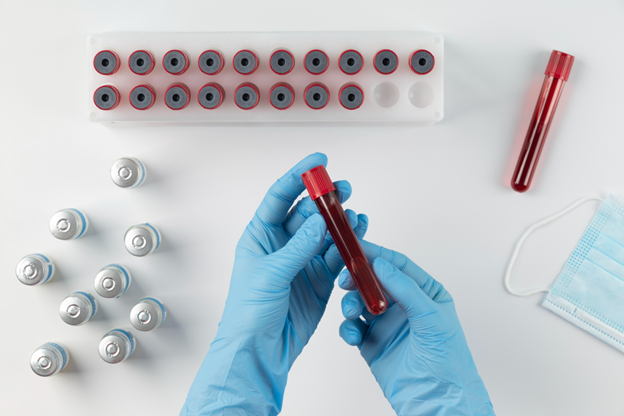Iron is an essential mineral that plays a key role in many bodily functions, including the production of hemoglobin in red blood cells. Ferritin is a protein that stores iron in your body, and measuring its levels through a ferritin test can provide valuable insights into your iron status. Both low and high ferritin levels can indicate various health issues, making the ferritin test an important diagnostic tool.
What is Ferritin?
Ferritin is a protein found in your cells that stores iron. It is primarily located in the liver, spleen, and bone marrow. The amount of ferritin in your blood reflects the amount of stored iron in your body. Ferritin plays a crucial role in maintaining an adequate supply of iron for vital processes like the production of hemoglobin, which carries oxygen throughout the body.
Why is the Ferritin Test Important?
The ferritin test is a key diagnostic tool to assess iron levels in the body. It helps healthcare providers determine whether a person has an iron deficiency or iron overload, both of which can lead to serious health problems. The test is especially important for:
- Diagnosing Iron Deficiency: Iron deficiency can lead to anemia, a condition in which the body does not have enough healthy red blood cells to carry oxygen. The ferritin test helps identify whether low iron stores are the cause of anemia.
- Monitoring Iron Overload: High ferritin levels may indicate iron overload, which can be caused by conditions like hemochromatosis. This can lead to organ damage, especially in the liver, heart, and pancreas.
- Assessing Chronic Conditions: Ferritin levels can also provide information about chronic inflammatory conditions. Elevated ferritin levels are often seen in inflammatory diseases, such as rheumatoid arthritis.
How is the Ferritin Test Done?
The ferritin test is a simple blood test. A healthcare provider will draw a sample of blood from a vein in your arm, which is then sent to a laboratory for analysis. The test measures the amount of ferritin in your blood and provides information about your body’s iron stores.
When Should You Get a Ferritin Test?
You may need a ferritin test if you have symptoms of iron deficiency or iron overload, including:
- Symptoms of Iron Deficiency: Fatigue, weakness, pale skin, shortness of breath, dizziness, or cold hands and feet.
- Symptoms of Iron Overload: Joint pain, abdominal pain, weakness, or heart problems.
- Chronic Illness: If you have a chronic condition like rheumatoid arthritis, your doctor may use ferritin levels to assess the level of inflammation in your body.
Interpreting Ferritin Test Results
Ferritin levels are usually measured in nanograms per milliliter (ng/mL). The normal range typically varies from 30 to 300 ng/mL, but this can differ based on age, sex, and laboratory standards.
- Low Ferritin Levels: Low ferritin levels typically indicate iron deficiency. This may be due to insufficient iron intake, blood loss, or poor absorption of iron from food.
- High Ferritin Levels: Elevated ferritin levels can indicate iron overload or chronic inflammation. In the case of iron overload, this may be a sign of a genetic condition like hemochromatosis or other conditions like liver disease.
Treatment for Low Ferritin Levels
If your ferritin levels are low, your doctor may recommend iron supplements or changes to your diet to increase iron intake. Iron-rich foods include red meat, poultry, seafood, beans, and fortified cereals. In severe cases, iron injections or intravenous iron may be needed.
Treatment for High Ferritin Levels
If your ferritin levels are high, your doctor may recommend treatments to reduce iron levels, such as:
- Phlebotomy: A procedure where blood is removed from the body to decrease iron levels.
- Iron Chelation Therapy: Medications that bind to excess iron and help remove it from the body.
Conclusion
The ferritin test is an essential diagnostic tool for assessing your iron levels and diagnosing conditions like iron deficiency anemia and iron overload. If you experience symptoms related to abnormal iron levels, a ferritin test can help identify the cause and guide appropriate treatment. If you have concerns about your iron status or ferritin levels, consult with your healthcare provider to determine the best course of action.
Schedule your test today at Medifine Diagnostics!


